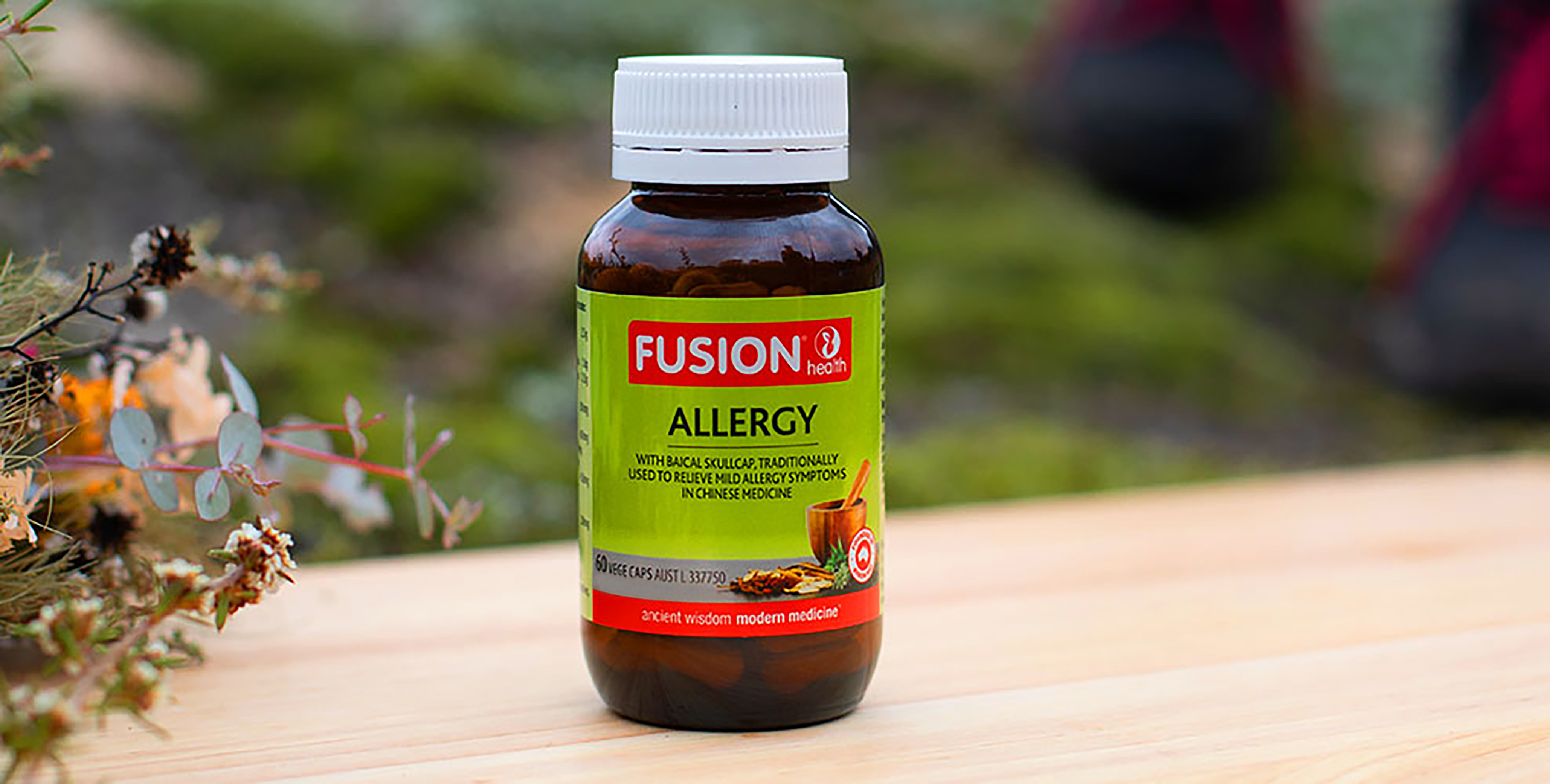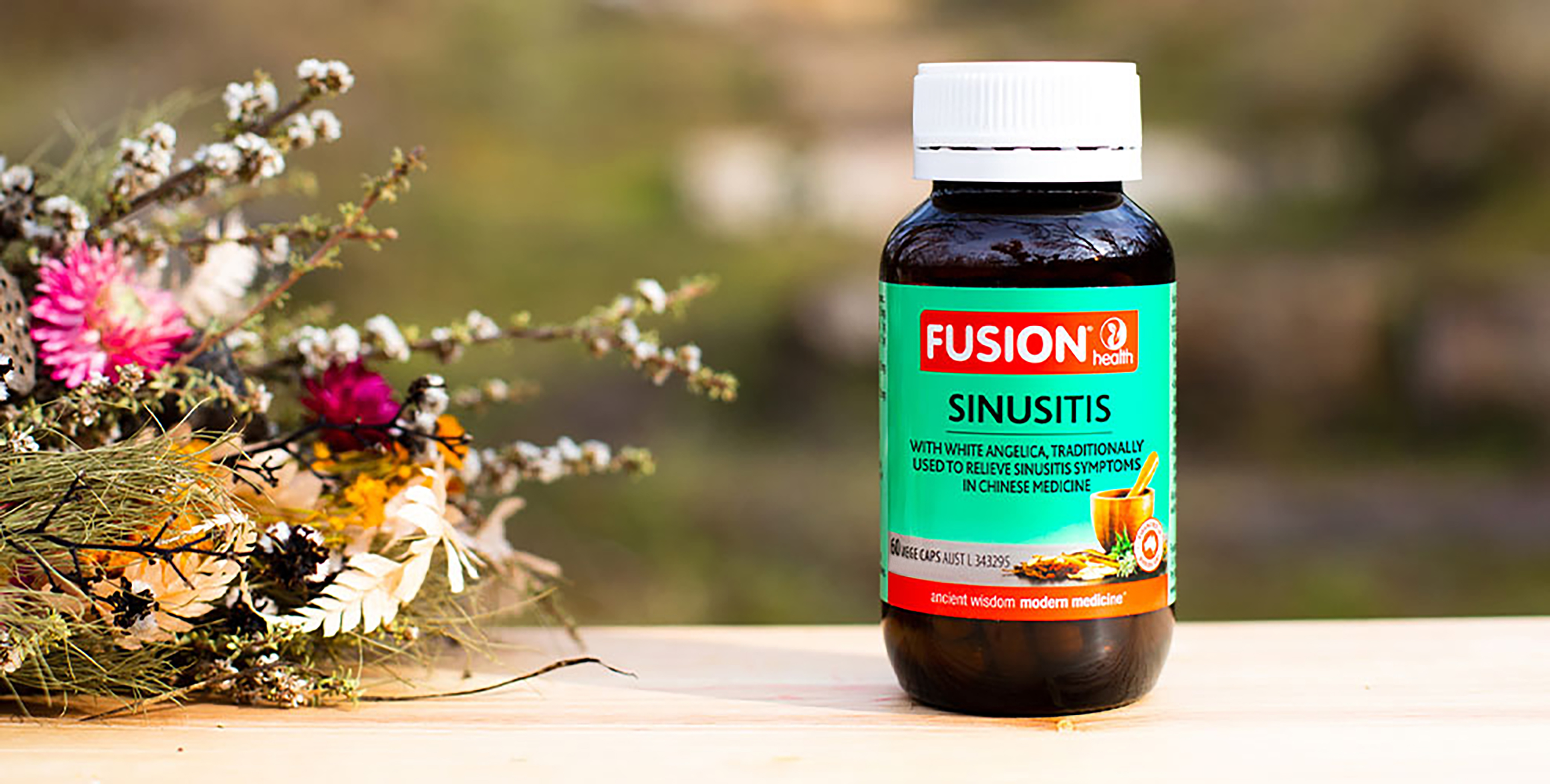Traditional Chinese herbal relief for hayfever
Quick overview
- Hayfever is an allergic reaction produced by the body in response to allergens, which can cause symptoms like itchy nose and eyes, runny and blocked nose [1]
- In Chinese medicine, baical skullcap is traditionally used to provide relief for the symptoms mild allergies, such as hayfever
- People who experience hayfever may develop symptoms of sinusitis such as congestion in the nasal sinuses [2]

What’s hayfever?
Hayfever is another name for a condition also known as ‘allergic rhinitis’. It’s an allergic reaction produced by the body in response to triggers, or allergens, in the surrounding environment that are breathed in through the nose – typically pollen, grasses, mould, dust mites or animal dander (animal skin cells, for example from your pets).[1]
Symptoms of hayfever
There are a variety of obvious symptoms you might experience when you have hayfever, some of which can include:
- Itchy nose and eyes
- Runny nose
- Blocked nose [1]
For some people, experiencing hayfever can be seasonal, occurring during spring or summer, while others can experience symptoms all year round. [1]
Histamine triggers hayfever symptoms
The symptoms of hayfever are triggered by histamine, a compound that your body releases when it comes into contact with an allergen.
Histamine’s purpose is to help your body flush out or overcome the allergen trigger, so once released, it quickly initiates inflammatory processes and dramatically increases the production of watery secretions from your nasal passages and eyes.
The effects are extremely rapid, so before you know it, you have a runny nose and itchy eyes!

Baical skullcap: traditionally relieves mild allergy symptoms in TCM
In Chinese medicine, baical skullcap is traditionally used to provide relief for the symptoms mild allergies, such as hayfever.
It can be found in Fusion Allergy, which also contains the Chinese herbs bupleurum, ginger, Korean ginseng, pinellia, zizyphus and Chinese licorice.
Herbal relief for mild eczema symptoms in TCM
Other allergies can affect the skin, resulting in inflammation and conditions such as eczema.[3]
Fusion Allergy contains baical skullcap, which relieves symptoms of mild eczema according to traditional Chinese medicine use. Baical skullcap also traditionally soothes skin inflammation in Chinese medicine.

Herbal relief for sinusitis in TCM
People who experience hayfever may develop symptoms of sinusitis such as congestion in the nasal sinuses.[2]
Fusion Sinusitis contains the herb white angelica which relieves sinusitis symptoms such as nasal congestion, eases sinus pain, and unblocks the nasal passages, based on use in traditional Chinese medicine (TCM). It also contains xanthium, traditionally used to relieve hayfever (allergic rhinitis) symptoms and sneezing and an itchy nose caused by wind-coldness in TCM.
Always read the label and follow the directions for use.
References
- Asthma Australia. Last updated September 2020 and accessed July 2021 from https://asthma.org.au/about-asthma/triggers/hay-fever/
- Australasian Society of Clinical Immunology and Allergy. Last updated May 2019 and accessed July 2021 from https://www.allergy.org.au/patients/allergic-rhinitis-hay-fever-and-sinusitis/sinusitis-and-allergy
- John Hopkins Medicine. Accessed July 2021 from hopkinsmedicine.org/health/wellness-and-prevention/rashes-and-skin-inflammation





















